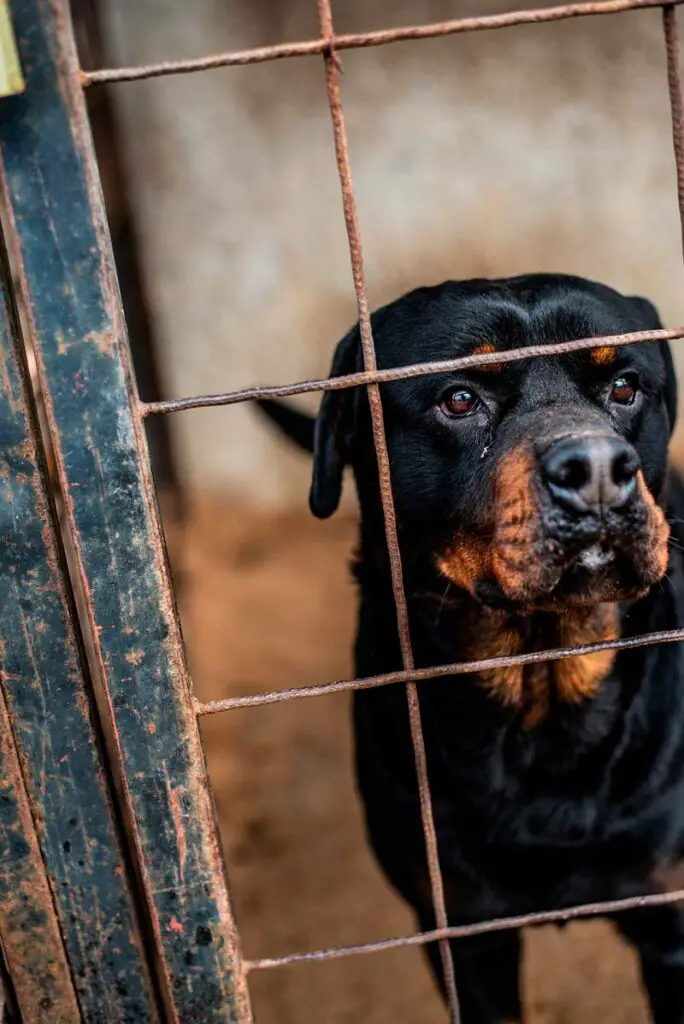Why Are People Afraid Of Rottweilers?

As a word of caution – my goal in this section is not to make you biased against Rottweilers in one way or another. Rather, I want you to have a more objective picture of what you could expect with this breed.
Many dog attacks are associated with Rottweilers
Rottweilers carry the erroneous reputation of vicious, aggressive, and dangerous dogs.
This stereotype has its roots in the numerous cases of Rottweiler incidents and canine homicides, as well as in the negative image attached to this breed by the media.
In 2000, rottweilers were named America’s deadliest dog breed due to 33 fatal attacks on humans between 1991 and 1998.
For comparison, pit bulls – who have been responsible for more deaths than any other breed at the time – were involved in 21 fatal incidents in the same time period.
Additionally, between 1979 and 1998, at least 25 dog breeds have been involved in 238 human fatalities, with over half of these deaths caused by Pit Bull-type dogs and Rottweilers.
These alarming statistics have prompted some local governments in the United States (and probably abroad too) to ban people from owning Rottweilers.
In areas where Rottweilers are allowed, owners may stumble upon specific difficulties in their daily lives, ranging from prejudice from other people and ending with dog breed restrictions with some homeowners insurance plans.
Despite all this, the American Kennel Club (AKC) characterizes the temperament of Rottweilers as calm, confident, and courageous.
AKC then adds stuff that we already know – that Rottweilers possess aloofness toward strangers and that they have a wait-and-see attitude toward their surroundings.
Why do Rottweilers become aggressive?
If you remember, in the previous section, I’ve been telling you that Rottweilers aren’t aggressive and dangerous. So how come all these horrifying statistics of canine homicides that involved Rottweilers?
As far as I am aware, no formal research has been carried out to determine the causes of Rottweiler aggression. However, I bet that Rottweilers’ aggressive behavior was the owners’ fault in the vast majority of cases.
If you recall, I said earlier that Rottweilers require consistent and firm training – more so than many other breeds. Suppose you, as the owner, are not strict and consistent enough to teach a Rottweiler – a confident and intelligent dog with super-high energy levels and an equally high prey drive – proper boundaries. In that case, you can be sure that a disaster involving your dog will happen sooner or later.
Rottweilers are loyal dogs who are extremely protective of their owners. However, a well-trained Rottweiler will never attack a stranger without a good reason.
A Rottweiler dog who hasn’t been trained and socialized properly is going to turn on their owners and even on complete strangers who really shouldn’t be suffering from the owner’s inability to restrain their dog. If neglected or left alone often, Rotties may become aggressive as well.
As a bottom line for this section – Rottweilers aren’t inherently dangerous, but they have been involved in many dog attacks, including fatal ones. Thus, I personally would stay away from Rottweilers whose owners I don’t know – just to stay safe.













